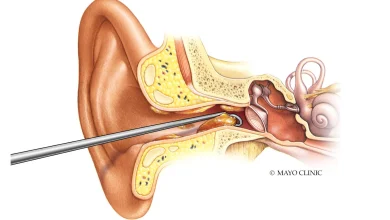How to Prevent Eye Deterioration with 5 Steps

Do you want to keep your eyes healthy and prevent deterioration? If so, you need to follow these five simple steps. Eye deterioration is a common problem that can occur as we age. However, by taking some preventative measures, you can keep your eyes in the best possible condition. Without further ado, let’s break down the steps.
Table of Contents
Step 1 – Get Regular Checks
First and foremost, you need to get regular eye checks. This is important because it allows any potential problems to be caught early on. If you wait too long, the problem could worsen and become irreversible. Fortunately, getting regular checks is easy to do; you can simply schedule an appointment with your local optometrist, such as Microprism Optics.
Sometimes, problems exist without any major symptoms. This is why regular check-ups are critical, as professionals can pick up on these issues before they have a chance to progress. For example, glaucoma is a condition that often does not present symptoms until permanent damage has already been done. By getting regular eye checks, you can avoid permanent eye damage.
Step 2 – Avoid Bad Habits
In truth, millions of people are stuck making bad decisions that put their eyesight at risk every day. For example, smoking is one of the most dangerous habits for your eyes. It increases your risk of developing cataracts, macular degeneration, and other issues. If you smoke, quitting is the best way to protect your eyes.
What’s more, other bad habits for your eyes include:
- Not wearing sunglasses or protective gear when outdoors
- Rubbing your eyes frequently
- Wearing contact lenses for too long
- Not taking breaks when working on the computer or staring at screens for long periods
Step 3 – Adopt Healthy Habits
Now that the bad habits are removed, it’s time to start developing some healthy habits for your eyes. Some important healthy habits include:
- Eating a healthy diet: A diet rich in fruits and vegetables is important for keeping your eyes healthy.
- Exercising regularly: Exercise can help reduce your risk of developing diabetes and other conditions that can lead to eye problems.
- Wearing sunglasses: Wearing sunglasses when you’re outdoors can help protect your eyes from the sun’s harmful UV rays.
- Quit smoking: Smoking is one of the worst things you can do for your health, and it can also lead to eye problems.
- Take breaks when working: If you work at a computer all day, it’s important to take breaks every 20 minutes or so to help reduce eye strain.
Step 4 – Check Your Family History
Although this often goes forgotten, your family history can give you important clues about your eye health. If anyone in your family has had problems with their eyes, there’s a good chance you may have the same issue. For example, if your parents or grandparents have had glaucoma, you may be at a higher risk of developing the condition.
Step 5 – Sleep Well
Finally, one of the most important things you can do for your eyes is to get enough sleep. Most people need around eight hours of sleep per night, and if you don’t get enough, it can take a toll on your health – including your eyes. Sleep gives your eyes a chance to rest and repair, so be sure to get plenty of shut-eye every night. In truth, your whole body will thank you for it.




